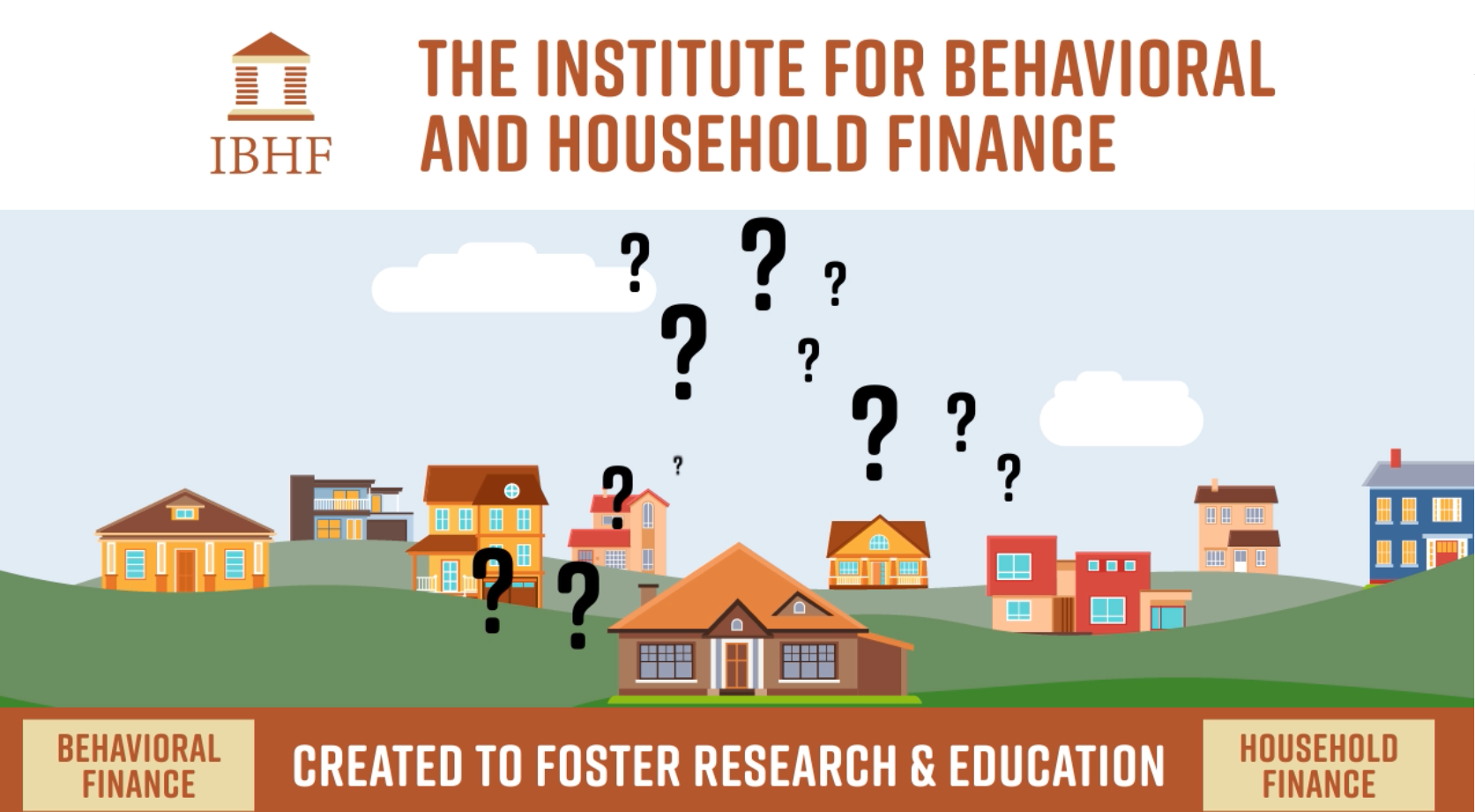The Institute for Behavioral and
Household Finance
Overview
The Institute for Behavioral and Household Finance (IBHF), located in the SC Johnson College of Business at Cornell University, is a research center which seeks to foster research and teaching in the areas of behavioral finance and household finance. IBHF affiliated professors and fellows conduct independent research in two important and expanding areas of financial economics: behavioral finance and household finance. New IBHF video! Click picture below to view.
Behavioral Finance
Behavioral finance is one of the most rapidly expanding fields in finance. Traditional (standard) finance theory describes the investment choices that households or firms should make to maximize household welfare or firm value — normative finance models. However, actual behavior and optimal behavior do not always coincide. The positive study of finance that tries to understand how behavioral biases and psychological effects influence financial decisions can serve to better inform financial market practices and financial regulation policies.
Household Finance
Household financial decisions are vital to economic advancement and wealth building. Yet, statistics indicate that households are woefully unprepared and under-informed with regard to making financial decisions. Moreover, recessionary cycles often magnify the overall economic importance of individual and household financial decision making. The subprime mortgage crisis of 2008 is a good example of how individual and household financial decisions had a tremendous effect on the economy as a whole. Thus, understanding how household characteristics influence financial decisions is important to understanding both distributional welfare issues and broader financial market effects. Further, the research and study of household financial decision-making behavior is important to drive tax-related policies, pension-related policies, and consumer finance regulation.




